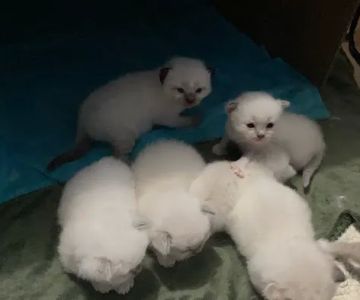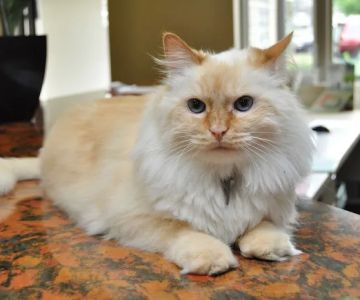- 1-understanding-diabetic-cat-diet
- 2-why-homemade-treats-are-beneficial
- 3-key-ingredients-for-diabetic-cat-treats
- 4-simple-recipes-for-homemade-diabetic-cat-treats
- 5-real-life-story-cat-treat-success
- 6-expert-advice-and-further-resources
1. Understanding the Dietary Needs of Diabetic Cats
Caring for a diabetic cat requires careful attention to their diet, particularly when it comes to treats. Unlike healthy cats, diabetic felines need low-carbohydrate, sugar-free foods that help maintain stable blood glucose levels. High sugar or high starch treats can cause dangerous spikes in their blood sugar, potentially leading to serious health issues.
The goal is to provide snacks that support insulin regulation without compromising flavor or enjoyment. Knowing the unique dietary requirements for diabetic cats lays the foundation for creating homemade treats that are both safe and tasty.
This understanding is crucial for any cat owner wanting to manage diabetes effectively through nutrition, beyond just medication.
2. Why Homemade Treats Are Beneficial for Diabetic Cats
Many commercial cat treats contain hidden sugars, fillers, and carbohydrates that can be harmful to diabetic cats. By preparing homemade treats, you gain full control over the ingredients and portion sizes, ensuring your diabetic cat only consumes what’s truly healthy for them.
Homemade treats also allow personalization to your cat’s preferences and dietary needs, making them more appealing and less likely to cause blood sugar fluctuations. Additionally, crafting treats at home can strengthen the bond between you and your pet, turning treat time into a positive and caring ritual.
Hidden Brook Veterinary provides resources and product recommendations that perfectly complement homemade diabetic cat treat recipes, helping owners maintain an ideal diabetic care routine.
3. Key Ingredients for Safe and Healthy Diabetic Cat Treats
When making treats for diabetic cats, focus on protein-rich, low-carb ingredients. Some ideal components include:
- Lean meats: Chicken, turkey, and fish are excellent sources of protein without added sugars or carbs.
- Eggs: A versatile, low-carb ingredient rich in essential amino acids.
- Vegetables: Small amounts of cat-safe veggies like pumpkin or zucchini can add fiber without spiking blood sugar.
- Natural supplements: Ingredients like fish oil provide omega-3 fatty acids, supporting overall health.
Avoid grains, sugars, and starchy fillers often found in commercial treats. Each ingredient choice should prioritize blood sugar stability and overall nutritional benefit.
4. Simple Recipes for Homemade Treats That Diabetic Cats Will Love
Creating treats at home can be straightforward and rewarding. Here are two easy recipes that blend nutrition with palatability:
Chicken & Egg Bites
Combine cooked, shredded chicken breast with a beaten egg and a spoonful of pureed pumpkin. Form small bite-sized balls and bake at 350°F (175°C) for 15 minutes. These treats are protein-packed, low-carb, and rich in fiber.
Fish & Zucchini Patties
Mix canned tuna (in water, no salt) with grated zucchini and an egg. Shape into tiny patties and bake for 12-15 minutes until firm. This recipe provides essential omega-3s and antioxidants.
These treats can be refrigerated and offered in moderation to complement your cat’s diabetic diet. Adjust ingredients according to veterinary advice for best results.
5. Real-Life Story: How Homemade Treats Improved One Cat’s Diabetes Management
Lucy, a diabetic cat, used to struggle with unstable blood sugar levels despite medication. Her owner switched to homemade treats focusing on lean proteins and fiber-rich vegetables. Within weeks, her glucose readings stabilized, and Lucy showed more energy and enthusiasm.
This improvement was credited to avoiding processed treats that contained hidden sugars. Lucy’s owner also worked closely with veterinarians at Hidden Brook Veterinary to refine the diet and select the best complementary products.
Stories like Lucy’s demonstrate the powerful impact of thoughtful nutrition tailored for diabetic cats.
6. Expert Advice and Where to Find Supportive Products
Veterinarians emphasize that diabetic cats benefit most from a consistent, carefully managed diet that includes balanced treats. Consulting professionals before making dietary changes is crucial to avoid adverse effects.
Hidden Brook Veterinary offers specialized products designed for diabetic cats, from nutritional supplements to custom diet plans, supporting your homemade treat efforts. Their expert guidance can help ensure your cat’s treats and meals are both enjoyable and safe.
Starting with the right recipes and professional support will empower you to make the best choices for your diabetic feline’s health and happiness.











